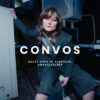Stephen Farber is one of the most prominent film critics in the entertainment industry. He was the president of the Los Angeles Film Critics Association for four years and is currently a film critic for The Hollywood Reporter. With decades-long industry experience, he has written reviews and articles on film for leading publications such as the Los Angeles Times, The New York Times, the Daily Beast, Film Comment, New West, Esquire, and many other national publications. Farber is also an established screenwriter who has written screenplays for directors Sydney Pollack, Herbert Ross, Barry Levinson, and Philip Kaufman. Let’s take a closer look inside the mind of a film critic.
How did you start your career in the entertainment industry? Can you tell us a brief background of yourself and your journey?
When I was in high school in Cleveland, the local newspaper sponsored a movie reviewing contest for high school journalists. We attended a preview screening of a new movie each month and wrote a review for the school paper. I won the contest, and the “prize” was a week-long trip to Hollywood, where I visited movie sets and met actors like Sidney Poitier, Tony Curtis, and even Elvis Presley. Obviously, that was an exciting experience for an aspiring film critic. I continued to write reviews in college and graduate school and began to sell film criticism, first for small journals like Film Quarterly and Sight and Sound and then for major publications like The New York Times and New West magazine.
What inspired you to become a film critic? What films and which film critics have been the most inspiring or influential to you?
I always enjoyed watching movies and also reading reviews. When I was growing up, I was most influenced by critics like Stanley Kauffmann, Dwight Macdonald, and Pauline Kael.
What was your first project or assignment as a film critic in Hollywood? Can you walk us through the process of preparing for the role?
My first published article was an essay called “New American Gothic,” written for Film Quarterly, the magazine published by the University of California Press. I then became the Los Angeles editor of Film Quarterly when I entered the graduate program at UCLA. I would say it was easier getting started in the field than sustaining a career as a film critic.
You were the president of the Los Angeles Film Critics Association for many years. How was the experience and what was your typical day like? How has film criticism evolved over the years?
As president of the Los Angeles Film Critics Association, I supervised meetings several times a year and also was responsible for producing our annual awards dinner, which involved inviting guests, selling advertising, putting together the program of speakers and video clips. Of course, there have been many changes in the field of film criticism over the years. When I first joined the Los Angeles Film Critics Association, all of the critics wrote for newspapers or magazines or appeared on radio and television. As the number of print publications has shrunk drastically, most film criticism has gravitated to online platforms.
What are the film elements a good critic must look for when analyzing a film?
I feel the critic should evaluate all of the elements that go into making a good film–acting, writing, direction, as well as technical elements like cinematography and editing. Of course, we also have to consider the type of film we are reviewing. You don’t evaluate a comic book movie in the same way that you evaluate an intimate character drama. But it is perfectly reasonable to admit that you have a preference for one kind of movie over another. I am never going to be that enthusiastic about a Marvel comic book movie, but I can recognize that some films in that genre are better executed–and even better written–than others.
Can you tell us some of the recent films you’ve reviewed? What’s the best way for aspiring film critics to find clients or assignments with major studios and entertainment trade publications such as The Hollywood Reporter, IndieWire, Deadline, The Wrap, etc.?
Because of the pandemic, I have reviewed far fewer films in the last year than at any time in the past. I have reviewed a few documentaries, including The Way I See It, about White House photographer Pete Souza. It is not easy for newcomers to find opportunities in the field of film criticism. But I always suggest that aspiring critics try to write reviews on their own and submit them to editors at these various publications. You may not get hired immediately, but you may make some valuable connections with editors and other writers at these publications.
The emergence of the digital age and society’s passion to express their artistic perspectives on social media platforms blurred the lines between theoretical expertise and personal opinions. What’s your opinion about film criticism being democratized because of the digital age?
It is encouraging to have more diverse voices represented, even if some of these critics do not have the academic and literary background that used to be considered essential.
What do you think about film review aggregators such as Rotten Tomatoes, Metacritic, and IMDB? How should audiences approach the ratings on these sites? Can reviews truly make or break a film’s reputation?
Unfortunately, many moviegoers now rely on sites like Rotten Tomatoes to decide whether or not to view a film. They look at the overall score rather than taking the time to read thoughtful individual reviews that may not be in sync with the “majority” view. In the past, it might have been possible for one influential critic to “make” a film’s reputation, but I would say this is less true today. Now it is all about the numerical score.
Is it encouraged for a film critic to have their own website or channel? If so, what kind of samples should it include? Are there particular source materials you could recommend that aspiring film critics should use to improve their critical eye and analysis?
I have my own website, and many critics do. I would suggest that people do some research and find some websites or podcasts that seem appealing to them.
The pandemic has greatly affected the entertainment industry. How did it affect your side of things?
As indicated above, the pandemic has certainly had an impact on my writing as well as on other activities like film series (Reel Talk and Anniversary Classics) that I hosted before the shutdown of theaters and the postponement of many film releases.
What do you think the future of filmmaking would look like? What kind of stories do you think will emerge and capture the attention of producers and executives?
I always hope that high-quality films will continue to exist, even though I would argue there are fewer of these first-rate movies than in past decades.
What’s your advice to aspiring film critics who want to break into the industry?
Keep writing, especially when you feel passionately about a film that in your view was either underrated or overrated by the majority of critics. The way to get noticed is to buck the consensus, but always do this in an honest way.
Check out our in-depth feature about the history of film criticism and its impact on the modern day film industry. Read it here.




